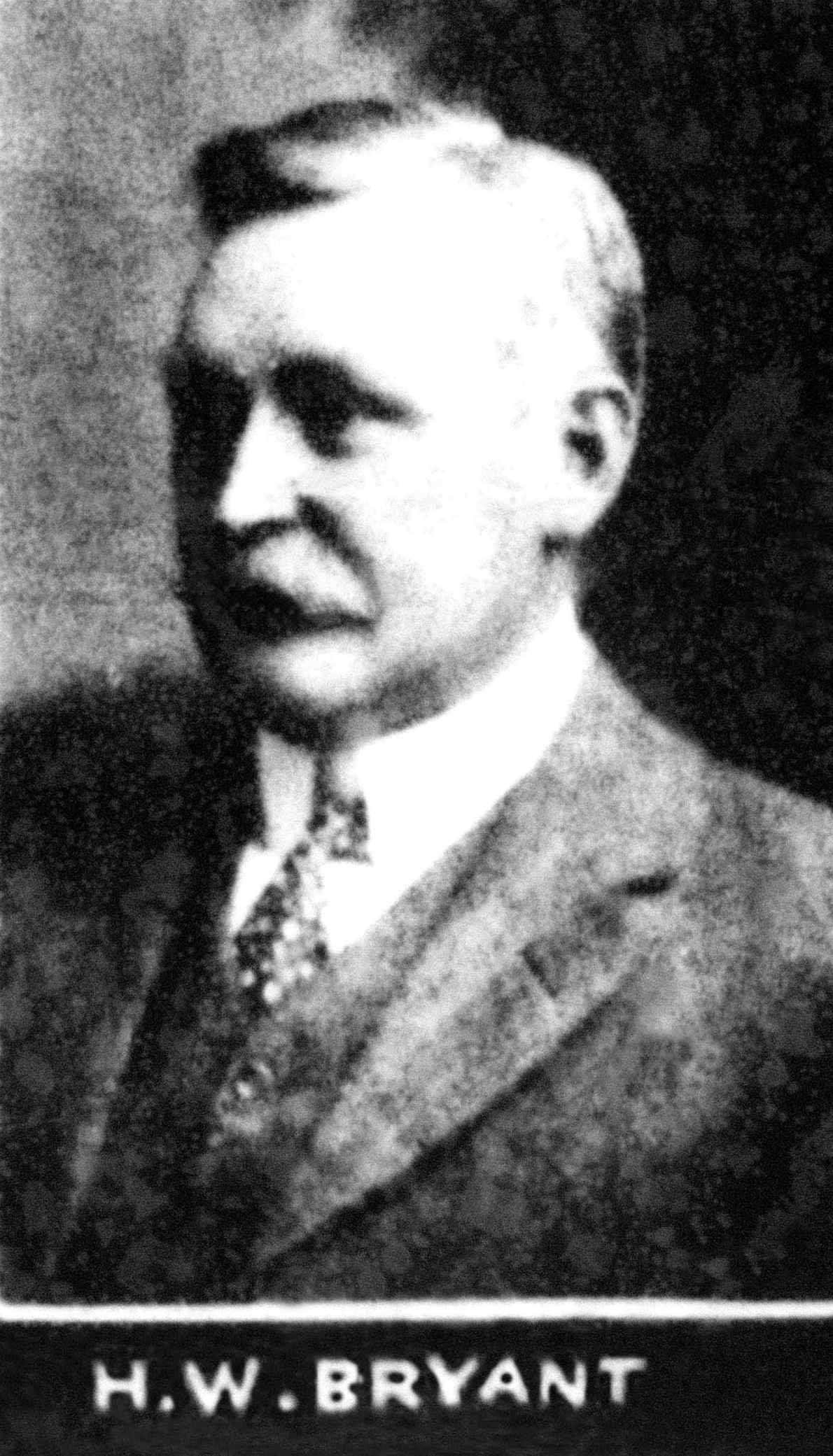 Henry William Bryant was born in Melbourne in 1860. He was educated at Melbourne Grammar School in 1869, becoming a Prefect and captain of the rifle team in 1877 and 1878. He continued his studies at the Melbourne and Edinburgh Universities. On taking the degrees of Licentiate of the Royal College of Physicians and Licentiate of the Royal College of Surgeons at Edinburgh, and Licentiate of the Faculty of Physicians and Surgeons of Glasgow in 1885, he returned to Melbourne and settled in the Williamstown district, where he soon acquired a large practice.
Henry William Bryant was born in Melbourne in 1860. He was educated at Melbourne Grammar School in 1869, becoming a Prefect and captain of the rifle team in 1877 and 1878. He continued his studies at the Melbourne and Edinburgh Universities. On taking the degrees of Licentiate of the Royal College of Physicians and Licentiate of the Royal College of Surgeons at Edinburgh, and Licentiate of the Faculty of Physicians and Surgeons of Glasgow in 1885, he returned to Melbourne and settled in the Williamstown district, where he soon acquired a large practice.
He was one of the more prominent medical men in Williamstown for more than twenty years and played an active role in several important civic projects. He was a supporter of the founding and development of Williamstown Hospital, he lobbied for improvements in water supply and sanitation, for vaccination of children and a stronger juvenile welfare system.
When at Williamstown he joined the Naval Brigade as a surgeon, but transferred to the military forces in 1897, and continued with the Australian Army Medical Corps up till his death. He received the Volunteer Forces Decoration.
He was President of the BMA Vic Branch in 1905. About this time, he moved to 103 Collins Street and had a lucrative city practice by the outbreak of war.
On the outbreak of the war, he was appointed with the rank of Lieutenant-Colonel to command the No.1 Australian Stationary Hospital, a unit raised in South Australia. In March 1915 his hospital was sent to Mudros, a small port city on the Greek Island of Lemnos, and did magnificent service under severe conditions attending to the sick and wounded during the early days of the Gallipoli campaign. They received 274 patients from Gallipoli in two days, with no additional staffing. They also had to move their own equipment and do building work. For his work Lt-Col Bryant was twice Mentioned in Despatches.
Bryant became ill and, much against his will, he was invalided to Australia. His appointment terminated on 28th February 1916. After convalescence upon return to Melbourne he resumed medical practice and assisted the Defence Department by serving on medical boards for the assessment of war pensions. In July 1916 he presided over a meeting in the Athenaeum Hall “to consider the advisability of forming an association known as the returned Sailors and Soldiers’ Imperial League of Australia”, later known as the RSL.
Bryant’s health, which he never fully recovered, then commenced to fail rapidly, and he was obliged to give up ail professional work. Later he was transferred to the Anzac Hostel at Brighton, where he died on 6th May 1920. He was buried in the Brighton Cemetery with full military honours.
Last updated 25 December 2024
Main source: Paper by Shirley Moon for St John Ambulance Historical Society, Vic 2018.
Article by Dr Allan Mawdsley OAM
